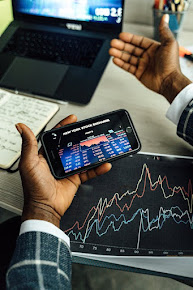The Advanced Guide to start Commodity Trading
What is Commodity Trading?
The commodity is an exchange of various assets, especially futures contracts. These contracts are based on the amount of fundamental commodities. The investor bets on the unpredictable future price on the basis of the buying and selling contracts of the future market. They sell the other futures if they think that the commodity will fall down and buy certain shares if they believe it will go high.
Commodity markets were developed in ancient times. In early times, ancient empires developed their trade routes to swap their goods.
Commodity trading is the new form of modern investing.
It was started in 1848 in the United States at the CBT (Chicago Board of Trade). When the prices were meant to be low, it has allowed the farmers to sell their grains at different points during the year at the harvest. The buyers and the farmers gained their safety against price changes. The commodities market is far better than the previous times. Now you can trade for 24 hours in the workweek.
How to trade in the commodity market?
There are many ways to trade in the commodities market, with their pros and cons.
The Futures Market of Commodity
This is the easiest way to trade in commodities. In this trade, you will enter into an agreement with other investors based on a commodity exchange's future price.
For example, if you agree to the commodity futures contract, and you buy 10,000 barrels of oil for $45 for 30 days. Here, you are not going to transfer any physical goods, but you end the contract through spot trading. As per this example, you will take your position with the buying contract to sell out 10,000 barrels at the current exchange price.
Physical purchases of commodities
You are not buying or selling any physical contracts in future contracts.
The futures market is all about betting the price. Therefore, they don't need the actual delivery of barrels of oils or the packages of grain. However, they can buy precious metals like silver, gold, certain jewelry etc.
The transaction costs are higher in precious metals. You will know the actual value of your investments and explore the precious metals.
Stocks of commodities
You can also buy the stocks of certain companies that deal in commodities. For grains, you can buy the stocks of the large agriculture business. For oils, you can buy the stocks of a particular oil drilling or refinding company.
In this type of investment, you can gain predictability about the commodities. If the prices of grains go up, then the stock price of the related company will go high as well. Investing in commodities stocks is less risky as you're not trading with the commodity price.
A popular company has the ability to make more money even if the commodity market is falling. Apart from the commodity's price, many factors like the management and total equity matter. Remember, the commodity stocks will not exactly track the commodity.
The Commodity Pools and Managed Futures
The Commodity pools and managed futures are personal funds invested in commodities. They have similarities with mutual funds, but many of them are not available publicly. Therefore you need approval.
These funds have more complicated trading methods than mutual funds and ETFs, providing high returns with high management costs.
For more day trading commodities, you can visit our website, where you can learn day trading online with our professional experts.
Source URL: https://www.commoditiesuniversity.com/



Comments
Post a Comment